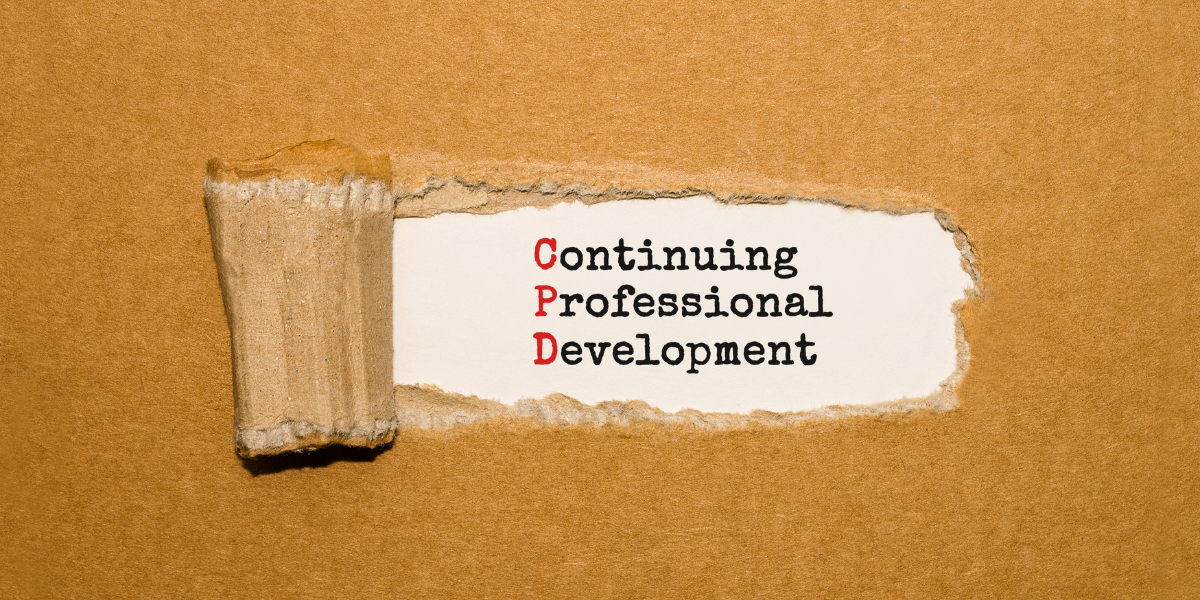All Things Admin Joins ASAP. Learn More ›
Bonus: ASAP at SHRM
December 10, 2024

In the final episode of this season, the ASAP team shared some of what they’re taking away from the HR event SHRM.
Recorded at SHRM 2024 and produced by the American Society of Administrative Professionals - ASAP. Learn more and submit a listener question at asaporg.com/podcast.
Download this episode for later and make sure to leave us a 5-star review on Spotify and Apple Podcasts!
Transcript
[music playing]
Leah Warwick: Hi, everyone. I'm Leah Warwick, and you're listening to "The Admin Edge." For this final episode of the season that we recorded at the HR event SHRM, we wanted to share some of what our team from the American Society of Administrative Professionals (or ASAP, for short) learned from this experience. But first, I posed a listener question to Executive Assistant Garnet Valliere on what admins today need from HR.
I'm kind of putting you on the spot, but if you could come up with them, what are three things that an HR department should provide to administrative professionals for them to contribute more to an organization?
00:00:48
Garnet Valliere: I think they have to be advocates and they have to understand. They have to be a partner to the EA. Again, it all rolls into the same strategic success of a company, and I think at the HR level you have to be as in tune with that as you are with the people, because then you're kind of the driving force of the people. I think [HR is] part of budgeting conversations – they are – and they're part of org design conversations, and they're part of development conversations all the time, IDPs.
I think, in HR, there are so many different types. For an HR VP, for example, they should really be asking for an individual development plan, and then it's in writing and you're able to put goals in. They really should be that partner with you that you can say – they're at the table saying, "Okay, we've got IDPs and I know we have a team of 10. One is an admin."
00:01:58
They just need to be an advocate. They need to be a voice in the room that says, "Our staff is our staff and they need training. And they need education and they need to be developed." So, if they could provide advocacy, that would be one.
I think a safe place for an admin to go is another very, very big one. They go through a lot. I think if they had a place that they could go to say, "I need a partner. I need someone to advocate for me." Or, "I need to understand what is the career path?" And having an answer for that, having an answer for what the career path is and then the answer for how you execute that career path.
00:02:50
Oftentimes, career paths are in flux or we're working on them, or they're sort of in their infancy in the company or that type of thing, which is great. Let an admin be a part of that. Let an EA speak to what their path could be because I think it's less obvious than other career paths like project management, engineering, litigation, managing, directing; there's such a clearer path for that. There's education. There's degrees. There's portfolios. There's your résumé. It's just so gray for an admin. I think an HR team [should] be clear, have a path, and be an advocate.
Leah Warwick: I love that. And also, you're so right. It is not usual, unfortunately, for admins to have the same type of career pathing that other roles have. HR could start by partnering with an admin. Ask them their thoughts and start from there.
[music playing]
00:04:04
Next, let's listen to a conversation between ASAP Event Director Meggan Kilmurry, Senior Training Manager Nicole Baker, and myself on what we're taking away from SHRM, and how it connects to our work and mission at ASAP. Nicole speaks first.
Nicole Baker: I think the biggest takeaway I've found is it's really centered around development for professionals, and in our instance really focusing on administrative professionals, and then looking at the future of work and how all of this development is part of the engagement, really a key driver for it, and it speaks to all of the work that we do for advocacy of professional development of administrative professionals, EAs, Chief of Staff, and it connects it to what we do.
00:04:51
Meggan Kilmurry: Yeah, I heard the last speaker talk about two times more likely to turn over if they don't feel that there's development culture in the company, so not just, "Oh, we have this training program. We have a LinkedIn Learning license." But more supported from both the manager and the culture of the organization, too. I thought that was really interesting. It goes beyond just these kind of turnkey or one-stop kind of options.
And I think every company wants retention, right? Nobody wants to see turnover. There's a lot of investment. And early turnover is really challenging, too. All the investment that goes upfront to have [admins] turn over within the first year or two years, even within the first three years, that's a heavy lift, especially if they're administrative or executive assistant level. They have access to a lot of different functions and support a lot of different functions that oftentimes people don't even know what they're doing.
00:05:46
So then to have to restaff, retrain, puts a lot of pressure and lack of support on multiple functions in the business. It's just interesting to think about that role specifically. And then flipping it, like they talked in the last session, too, around how that role is an entry point into many other next-level roles where people start as admins.
Nicole Baker: Development is the key and then it opens up the next question: Where do we find these resources? And then resource scarcity is really influencing organizational effectiveness, and so that's where we come in. What we do – a key question we were asking everyone stopping by the booth was: It's 2024. Do you know what training your admins need? Most of them said, "I have no idea." And then the answer is, "No problem. That's what we do. We have the solutions. We have the data-driven programming." There is a significant gap in the level of training needed and what organizations can provide in-house.
00:06:50
Meggan Kilmurry: I think another thing we've heard, too, was what I found – I think so often as a manager you feel like, "Alright, it's on me to make sure that my directs know where they're going, that they have the roadmap, they feel supported." But what we also heard is that the employee drives that so heavily, too. So, it's not this weight on the executive or your direct hiring manager as the person that you should be constantly looking to. It's about yourself, too, like: Where do I want to take my career? And then voicing that through your one-on-ones, through any kind of casual conversations you're having, through working with peers even. I feel like just talking to your peers about, "Where can I take my role?" and others in the company. I think it's also on the employee themselves to advocate.
Leah Warwick: Right, yeah. And we did hear a lot about individualized development plans, which are really important. A one-size-fits-all solution for your entire admin department or all the EAs you work with is probably not the best solution, because let's say you have two EAs. One might be wanting to go in the direction of being more of a project manager, while your other EA, if you really ask them, "Well, what do you want?" might say, "Well, I have project management skills. I'm really interested in improving my systems thinking. I'm interested in improving my AI skills." Whereas the other is like, "Oh, I'm good on AI."
00:08:11
So I think you really need to make sure that you're listening to the person and making sure that their training plan fits them.
Nicole Baker: And be willing to identify your weaknesses. I always say that identifying your weakness is a strength and not being afraid to say, "Okay, I'm good at this. I need to build here." That doesn't show a weakness in your role or that you're not a good fit; it helps you identify that personalized development plan.
Leah Warwick: Yes. And another big trend I've been hearing about is a workforce that is heavily headed toward retirement, and we are facing a pipeline issue with leaders. Transferable skills, staying up-to-date on your skills – there's going to be a huge turnover coming soon, so how do we make sure that the next generations coming up are upskilling and being the kinds of leaders that are going to move us into the future?
00:09:07
With AI, work is changing. Admin work especially is changing. What used to take people days or weeks and doing manual tasks can be automated very quickly now. So, what kinds of skills should they be focusing on to drive the business forward?
Nicole Baker: And understanding that of course it's not answering phones, taking messages, even meeting minutes and calendar management. It's really evolved from there to be a strategic partner for their executive, their organization, understanding big-picture thinking, and how can I best build my skillset to be best utilized on this team? Upper management needs to understand that there's a lot of opportunities for [admins] to be a leader, for them to be part of the conversation at the beginning, the middle, and after, and so it's such an asset to have an individual who's listening in, part of the conversation, taking next steps to include things that may have fallen off at that level.
00:10:01
Leah Warwick: Yeah, you might be surprised. There's so much untapped potential in the admins that you have. They're doing so much that often execs and upper managers don't even know that they're able to do until maybe [the admin is] on vacation or they go to a training conference and they're like, "Wait, they were really holding everything together." You don't want it to get to that point. You want to have these conversations regularly, realizing the power that you have in them and that they can be a real strategic advisor for you. It's unfortunate that a lot of the time the really untapped potential of admins is not brought to the fullest fruition, especially at the executive level.
Nicole Baker: And the empowerment, I think, too. One huge piece taken away from this event is that development is a key driver for engagement and empowerment, letting [admins] know that "I see you. I want to build you to where I know you can go. It will help me, our organization, and we're off and running."
[music playing]
Leah Warwick: Now we touch on a common anxiety that we often hear from administrative professionals: the fear of walking away. That is, if I step away from my role to go on vacation or go to a conference for my professional development, things will fall apart without me. Or what if I bring in AI to assist? Will it replace me? We talked about this a bit off mic and get more into it here. Meggan speaks first.
00:11:29
Meggan Kilmurry: So we'll pick up where we left off: the fear of walking away. This fear of, if I bring in automation, if I bring in any new tools, what will I do with my day-to-day job and how will I be valuable to my employer? I think that's a big, critical piece of entry-level – or not even just entry-level, but administrative-support roles, fear of automating or finding too much efficiency, right? Too much efficiency, is that going to cause me to lose my job?
00:12:01
Nicole Baker: I've talked to a lot [of admins] about like, "Oh, AI is going to take my job." And it's not that. The potential of somebody taking your job is the individual who has really embraced AI and taken the opportunity to learn more about it. How can it build efficiencies in the organization? How can it make teams more productive?
We talk a lot about how we understand time is money and organizations look at the return on time. So, you use automation tools to give yourself more time. In turn, that gives the company more productivity and more value in their investment in you as an employee.
Leah Warwick: And the investment in your training, too. The ROI that you bring back from training is extremely important. Also, we were just listening to a session where it was talked about that companies, executives, when they're trying to attract top talent to their organization, they don't often talk about training opportunities and how we're going to invest in you. And that's really important because when you're showing that you can invest in people, they will say, "Well, thank you for giving that to me. I'm going to go get that training, and I'm going to reciprocate. I'm going to bring it back to the organization, and it's going to create ROI for the organization." That's really the tradeoff there.
00:13:19
A lot of people in our community struggle with asking for that training and development time and that's the crux of it. It's really about the ROI and what you're going to bring back. Those conversations need to happen. It benefits the business just as much as it benefits you.
Meggan Kilmurry: Yeah. And I think going from a support role to a leader in whatever function you're in, you don't have to wait for a title to be presented to you. You don't have to wait for a role to be presented to you. The more development you can get around managing projects, taking a look with a critical lens of, alright, there's a lot of time (back to your return on time) spent on these tasks. There has to be technology in 2024 or 2025 that is going to help me be more efficient with this, and then I can show how I took a problem and solved it with innovation.
00:14:12
That's leadership. That is taking a leader role in a support position and showing that you have the skills and you have the critical thinking and the problem-solving to be able to do that.
I want to transition to – we hit on this a little – talking about talent acquisition and retention. How much development and career progression and those conversations, along with the supportive culture, really has been a key theme we continue to hear here, and what it does, especially for administrative roles.
00:14:50
Nicole Baker: Yeah, one of the stats from one of the last sessions was that 50% of workers said they believe their employer is responsible for providing the necessary upskilling or reskilling to help unlock their potential in a digital future.
Meggan Kilmurry: We talked a bit too, about the double rainbow, building this into people's compensation packages, and very much part of the conversation at the hiring process, versus an employee feeling like, alright, they got into this job, they're six months in or they're a year in or two years in, and having to go out and ask, "What's next?" versus having that be a regular, comfortable conversation that happens more than just twice a year, or once a year at some organizations. That's part of those regular check-ins.
This is the double rainbow in the sense of not only does development help that individual, and we know drives engagement in their role and in the company, but it also helps the company. Having a skilled employee that can rise quickly allows for more growth within the organization. The organization can grow, especially at the administrative level.
00:15:55
Nicole Baker: And who wants development? Who wants to learn more? Who wants to be a sponge? I've worked with a lot of admins and it's like you don't know what you don't know, and that can be a really isolating place when you have leadership saying, "Okay, I want you to grow. What are the areas that you want to grow in?" Good question. That's why we focus a lot on the data-driven programming and looking at the numbers, and looking at the use case and role-specific training needed in the role, because[the admins] don't always know, and they want somebody to help them on that path and develop those plans, whether it be for the individual or at an organizational level.
Leah Warwick: Yeah, and that's why relying on surveying our community is so important, and why we've put out the State of the Profession Report every year. Looking to resources like that, you can gauge against your peers and see, "Oh, it looks like they're saying I need 20+ skills. These are the top skills mentioned. These are the topic areas mentioned by the majority of people who responded to this survey."
00:16:53
If you're unsure of where you want to go, something like that can be a great guide, and that's what we base our training around. It's really about asking and also re-asking every year, because every year things are changing. People need to reskill as well as upskill, so maybe one year it's something and then you start to see a bit of a shift happen.
For example, we introduced AI for the first time in our State of the Profession Report. Already, over a quarter of admins are using AI in their daily work, and generative AI has not been around that long in a publicly accessible way, like ChatGPT was all the rage in about 2023. It really came on the scene at the end of 2022, and already it has been widely adopted. We see that our community are very much about continuous learning and adapting to the latest technologies, so really staying on top of your skills in that way, and being able to have benchmarking against your peers year over year, is really important.
00:17:51
Meggan Kilmurry: In this year's report, we found that 1 in 7 employees in an administrative role feel undervalued. Then we dug in deeper and found only a small difference in compensation packages between those that feel valued and those that don't. It leads then to this finding that, again, going back to professional development is the key to feeling valued at an organization. Talk about a role that very often, if not the most often, feels undervalued in a company.
Nicole Baker: And while being unrecognized, if you will, and behind the scenes. So, it's more important than ever: They want to be recognized. They want to have their name next to their work. They don't always want to be behind the scenes. They want a seat at the table. This is such a great way [to do that]. Training and professional development can no longer be reserved for those who are struggling; it needs to be used also as a reward for those that are thriving in the role, and just across the board. It's for everybody, where they're at, and it's specific, individual, professional development planning.
[music playing]
Leah Warwick: Thank you for listening to "The Admin Edge," produced by the American Society of Administrative Professionals. Original music and audio editing by Warwick Productions, with audio and video production at SHRM by 5Tool Productions. If you liked this podcast, please leave us a nice review, five stars, and subscribe. If you'd like to submit a listener question, you may do so on our website at asaporg.com/podcast.











